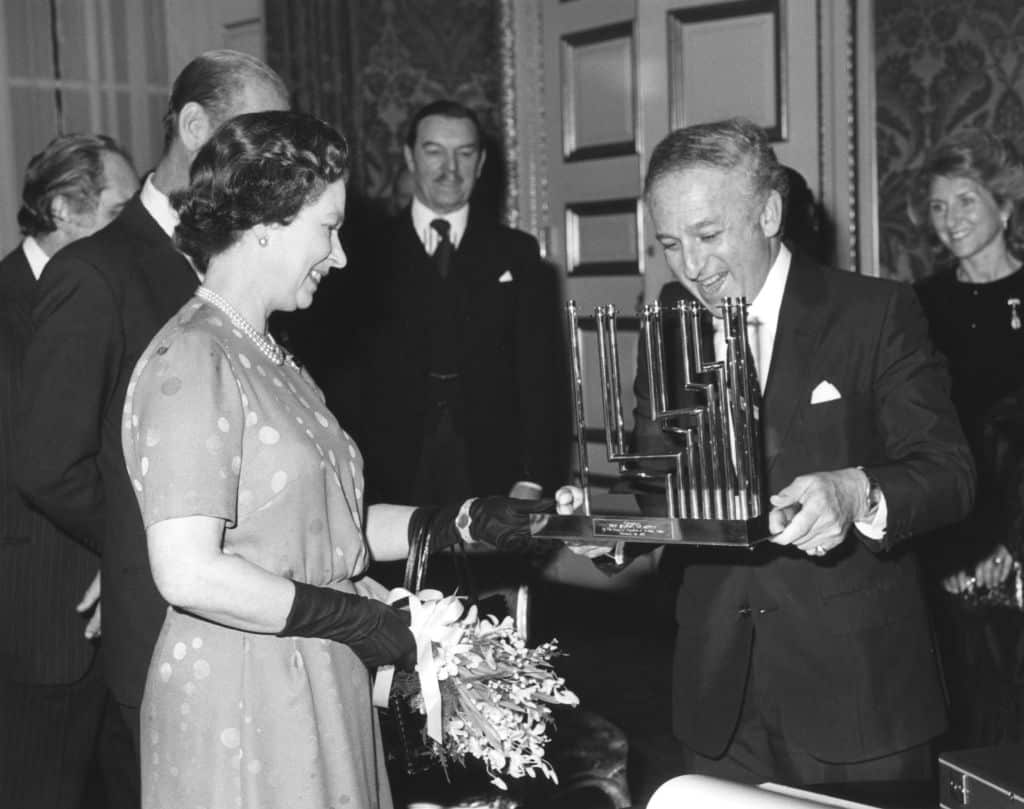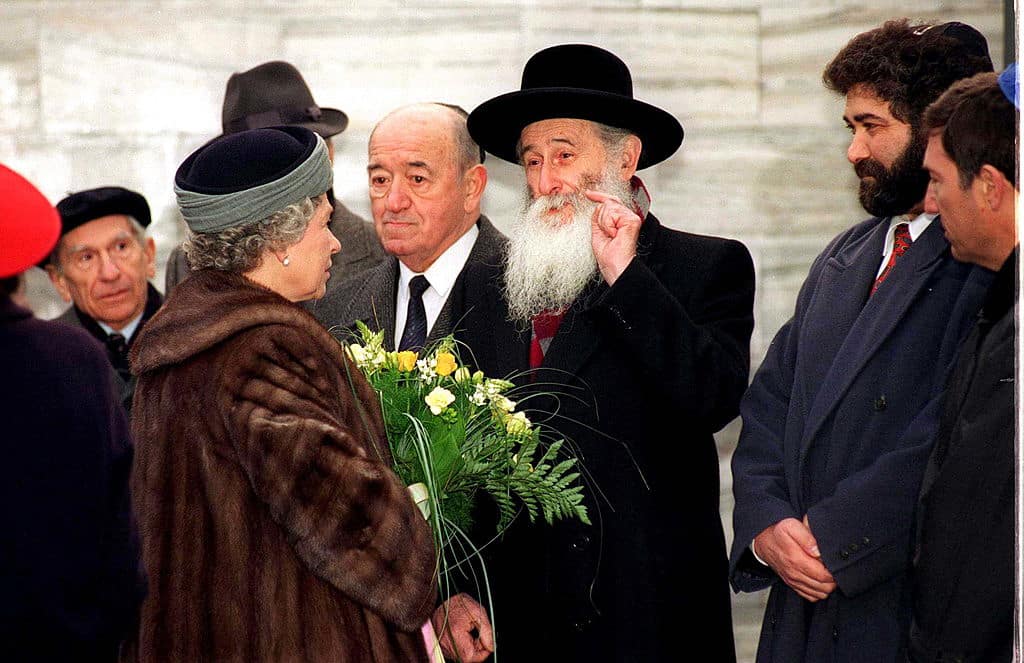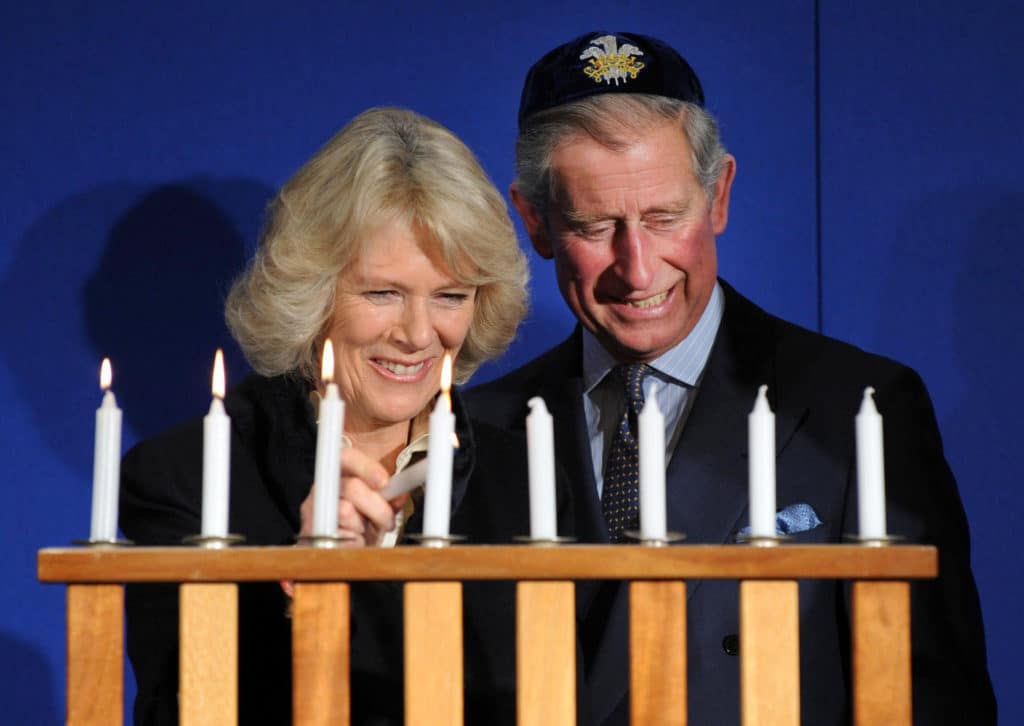
Queen Elizabeth II, the longest-serving British monarch, has died at the age of 96 after reigning for 70 years.
“Every week in synagogue, we have prayed for her welfare, wellbeing and wisdom, and she never let us down,” Chief Rabbi of England Rabbi Ephraim Mirvis said in a statement.
For the first time in 70 years the prayer British Jews recite for the Royal Family has changed. pic.twitter.com/U0XOP8iIPc
— Unpacked (@JewishUnpacked) September 8, 2022
“Her affection for the Jewish people ran deep, and her respect for our values was palpable. In life she was rightly admired and loved the word over; in death may her memory and legacy be for an everlasting blessing.”
The office of Rabbi Mirvis also issued a special prayer for the death of the Queen.
According to the office of the late Rabbi Jonathan Sacks OBM, former Chief Rabbi of the Commonwealth, Queen Elizabeth was a defender and supporter of Britain’s Jewish community.
“In England, almost uniquely, the Church stood alongside the Jewish community in its fight against antisemitism,” the office said in a statement in 2012.
In addition to her role as sovereign, the Queen was the head of the Church of England— a church with a shaky historical past when it comes the country’s Jewish community.
In 2012, Sacks reflected on his experiences meeting Queen Elizabeth at an event honoring the 60th anniversary of the liberation of Auschwitz. The Queen met with a group of Holocaust survivors at the event.
“When the time came for her to leave, she stayed. And stayed,” Sacks wrote. “One of her attendants said that he had never known her to linger so long after her scheduled departure.”
She stood with each survivor to hear their personal story, he observed.
“She gave each survivor — it was a large group — her focused, unhurried attention… One after another, the survivors came to me in a kind of trance, saying: “Sixty years ago I did not know if I would be alive tomorrow, and here I am today talking to the Queen.”

The Queen came to the throne in 1952 and witnessed enormous social change, including Britain’s transformation into a multi-ethnic, multi-faith society. Already in 1952, she was patron of the Council of Christians and Jews, the organization founded by the Archbishop of Canterbury William Temple and the Chief Rabbi Joseph Hertz in 1942, during a time of all-out warfare and Nazi persecution of Jews.
The Church has stood alongside the Jewish community in its fight against antisemitism, giving interfaith work a centrality and prestige it would not have otherwise had, Sacks noted.
“It helped to make tolerance the default option in British life.”

With the Queen’s death, her eldest son Charles, the former Prince of Wales, will lead the country in mourning as the new king and head of state for the 14 Commonwealth realms.
Prince Charles, and his father the late Prince Philip, Duke of Edinburgh, were particularly praised by Rabbi Sacks for their work with the Jewish community.

The Queen also embodied many Jewish values, he said.
“The quiet heroism of service, and in an age of self-obsession she has been a role model of duty, selflessly and graciously fulfilled.”
In 2011, the President of the Board of Deputies of British Jews gave Queen Elizabeth the traditional Jewish blessing for long life, Ad meah ve-esrim, “May you live to be a hundred and twenty.”
Not having heard this blessing before, she gave a quizzical smile, Rabbi Sacks, who was in attendance, explained.
“We had to explain that the figure was not meant to be precise. It was just our way of offering her our loyal thanks and our prayers that she may continue for many years in health and strength,” he said.
“She has been a blessing to us, the nation and the world.”
Originally Published Sep 8, 2022 03:23PM EDT
